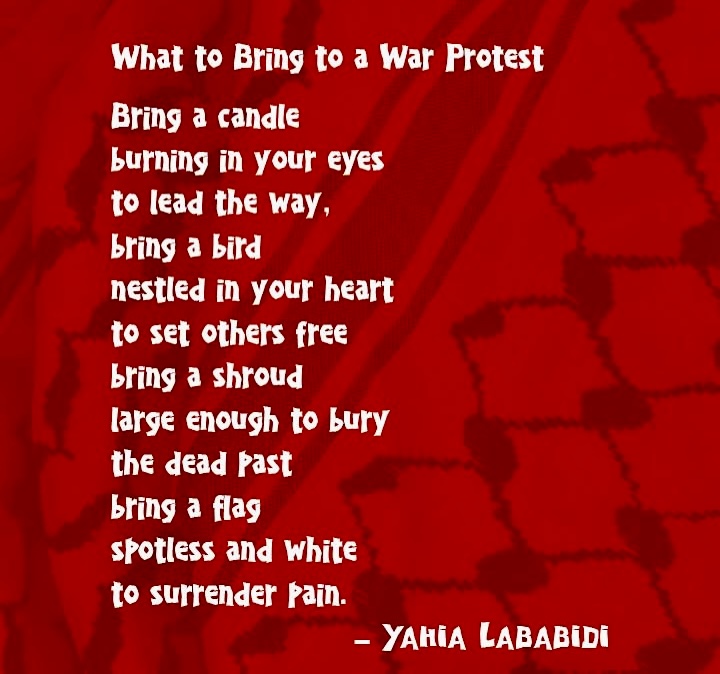There are moments in history when silence becomes not only a failure, but a form of violence. We are living in one of those moments now.
For more than a year and a half, we have watched a people systematically dispossessed, starved, bombed, and buried beneath rubble. And much of the world watches in cold complicity—or worse, justifies it.
As a poet of Palestinian descent, I do not speak as a partisan. I speak as a human being, and as someone who believes, stubbornly, that truth matters and words carry weight. Bearing witness remains a moral act, especially when facts themselves are under assault.
What is happening in Gaza is not a mystery. It is not complicated. It is horror playing out in plain sight. Tens of thousands of children have been murdered. Hospitals shelled. Aid convoys turned away. Every safeguard of international law has been shredded. What name shall we give to this, if not genocide? In one of my recent poems, I put it this way:
‘‘If you’re uncomfortable saying Genocide, say mass murder… say boneyard… say unmarked graves…say pity the children… say humanity under the rubble…say Lord, forgive us the enormity of our sins.’’
In another poem from my book, Palestine Wail, I say that even “a quiet moan or sighing is preferable to false words or worse: a loud and wounding silence.”
And yet, in the face of these crimes, too many equivocate—pleading for “balance” as if this were a mere dispute. But neutrality in the face of brutality is betrayal. It flatters the aggressor and abandons the victim.
We must be clear: to condemn Israel’s actions is not to deny the suffering or humanity of Jews. On the contrary, it is to insist that no people’s trauma can ever justify the trauma of another. To grieve for Palestine is not hatred. It is conscience.
The poet Mohammed El-Kurd writes of the impossible expectations Palestinians face; that they be graceful in their dispossession, polite in their pain, saintly in their resistance. In Perfect Victims, he exposes the cruelty beneath these demands—and the dehumanization they conceal. I echo him here: the oppressed should not have to earn their dignity. It is theirs by birthright.
In my own Wail, I did not write to explain Palestinian suffering to the West. I wrote to honor its sacred witness. Art, I believe, can still humanize what has been rendered faceless. It can say, I see you. You are not forgotten.
Poetry, at its finest, is a flame. It burns through euphemism. It refuses polite erasure. It speaks the realities others dare not name.
Israel’s assault on Gaza is not self-defense. It is a campaign of erasure. And the United States, through its unflinching support, is deeply complicit. Billions in military aid. No red lines. No accountability.
And so I write. Because I must. Because silence would betray my heritage, my humanity, and whatever remains of my faith in words.
The time for hedging is over. Let us mourn without apology. Let us reject the false terms of debate. Let us ask the only question that matters now: what does it mean to be human in a time like this?
Enough is too much. Palestinians do not need our pity. They need our solidarity—desperately, and now.




